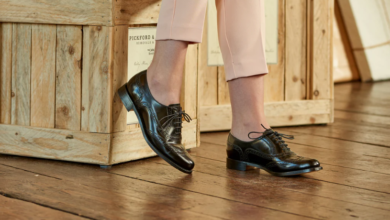No More Shame: The Power of Open Conversations About Menstrual Hygiene Awareness

For generations, menstruation has been cloaked in silence and stigma. Across cultures and communities, the natural biological process of having a period has been treated as something to be hidden, whispered about, or outright ignored. But the tide is turning. More people are speaking out, sharing stories, and challenging taboos — and this shift is not just empowering; it’s necessary.
Menstrual hygiene isn’t only involved women
Here’s a kicker: this shouldn’t fall on women alone. If you went without a pad, you’d lose school. Lost school—lost opportunities, lost social time, lost confidence. It’s not just personal; it’s communal, societal. And honestly? Everyone—men, boys, folks of all genders—ought to care. Because it’s about people, dignity, and health.
still tip-toeing around it?
It’s not just a case of old-school taboos. There are places where girls still skip classes. No shame, no prep. Just not a pad in sight. And elsewhere, we’re hiding products in purses, sleeves, whispering “excuse me” every time someone buys tampons. Crazy, right? It’s more than just sticky fingers and hidden boxes. It’s about access, yes—but also respect. Not something “gross,” not a secret. It should be as routine as – I don’t know – brushing your teeth.
Policy matters, too (not just awareness)
Menstrual hygiene Awareness is step one. But we need action. Some places have free pads in schools. Smart move. But in so many cases, those pads are taxed like designer lipstick—luxury. While for some, going without means infections, shame, school missed, dignity stolen. We need fair policies, infrastructure for clean water and disposal, products in schools, workplaces, even public bathrooms. Because your cycle shouldn’t be a liability or an embarrassment. It’s biology—normal, natural.
What can you actually do?
You don’t have to be a full-on activist to make things better: Mention it casually. “Oh, pads just ran out. Could you grab some if you’re at the store?” Boom—no shame. Support local groups. They’re often tucked away but doing so much. Lobby schools or offices—just ask for products or education. Get curious. Read. Learn. Share what you learn.
About Real education
When someone says “period talk,” that’s usually just how‑to wrap a pad. But there’s so much more. Ever heard of endometriosis? Polycystic ovary…whatever. So many folks go undiagnosed, just told “you’ll be fine” or “just deal with it.” That’s not education. That’s wishing someone’s suffering away. A good menstrual education? It’s real talk. It’s the ‘why.’ It’s the body’s rhythm. It’s what’s normal and what’s not without freaking out. And yes. Boys need to hear this stuff too, so games of “period jokes” can finally die off.
When a Pad Costs More Than Pride
Explores how even basic menstrual products can feel like a luxury. It highlights the emotional toll of having to budget for pads or tampons or worse, skipping school or work because they’re unaffordable. Opt for Sanitary Pads which are environment friendly. It’s not just about money; it’s about losing dignity for something natural.
The Problem Isn’t Periods — It’s Silence
Dig into how stigma and hush-hush attitudes do more damage than menstruation itself. When a topic is never named, it accumulates shame, myths, and misinformation. This heading invites the reader to question: what would change if we stopped whispering?
You Can’t Manage Your Period Without Water
A real talk about practical challenges: no clean water, no private toilets, no disposal bins. These are the basics—essential for safe menstruation—that so many still lack. Under this heading, we acknowledge the infrastructure gap that turns period hygiene into a barrier to daily life.
Boys Should Be in the Room Too
Challenges the idea that menstruation is a “girls-only” subject. By putting boys in the room—literally or figuratively—the conversation becomes inclusive, empathetic, and stigma starts to fall away. This inclusion builds allies, not bystanders.
Blood, Bias, and Bathroom Breaks
A raw look at the everyday micro-politics of menstruation: avoiding bathroom breaks at work or school, the bias against being “slow” or “hormonal,” and how even these small moments echo larger stigma. It’s honesty with a side of frustration.
From Taboos to Truth-Telling
Invites readers to shift from silence to openness, from myths to facts. This section encourages breaking generational cycles of shame by starting honest conversations—at home, at school, at work—with friends, family, or even strangers.
What Happens When You Pretend Periods Don’t Exist
Explores real-life consequences of denial: schools losing attendance, workplaces losing productivity, undiagnosed health issues from living with untreated pain. Pretending periods don’t happen doesn’t make them go away it just leaves everyone unprepared.
Not Just Pads: The Fight for Dignity
Reframes menstrual equity as a human rights issue not just about product access, but about ensuring people live with dignity. This heading invites a broader thinking: policy, education, sanitation, and equity all matter.
Final thoughts
Periods are a natural part of life just like eating, sleeping, and breathing. There should be no shame in discussing them. By embracing open conversations, we can build a world where menstruation is no longer a source of embarrassment, but a sign of strength, resilience, and shared humanity. No more whispers. No more shame. Just honest, empowered conversations.






